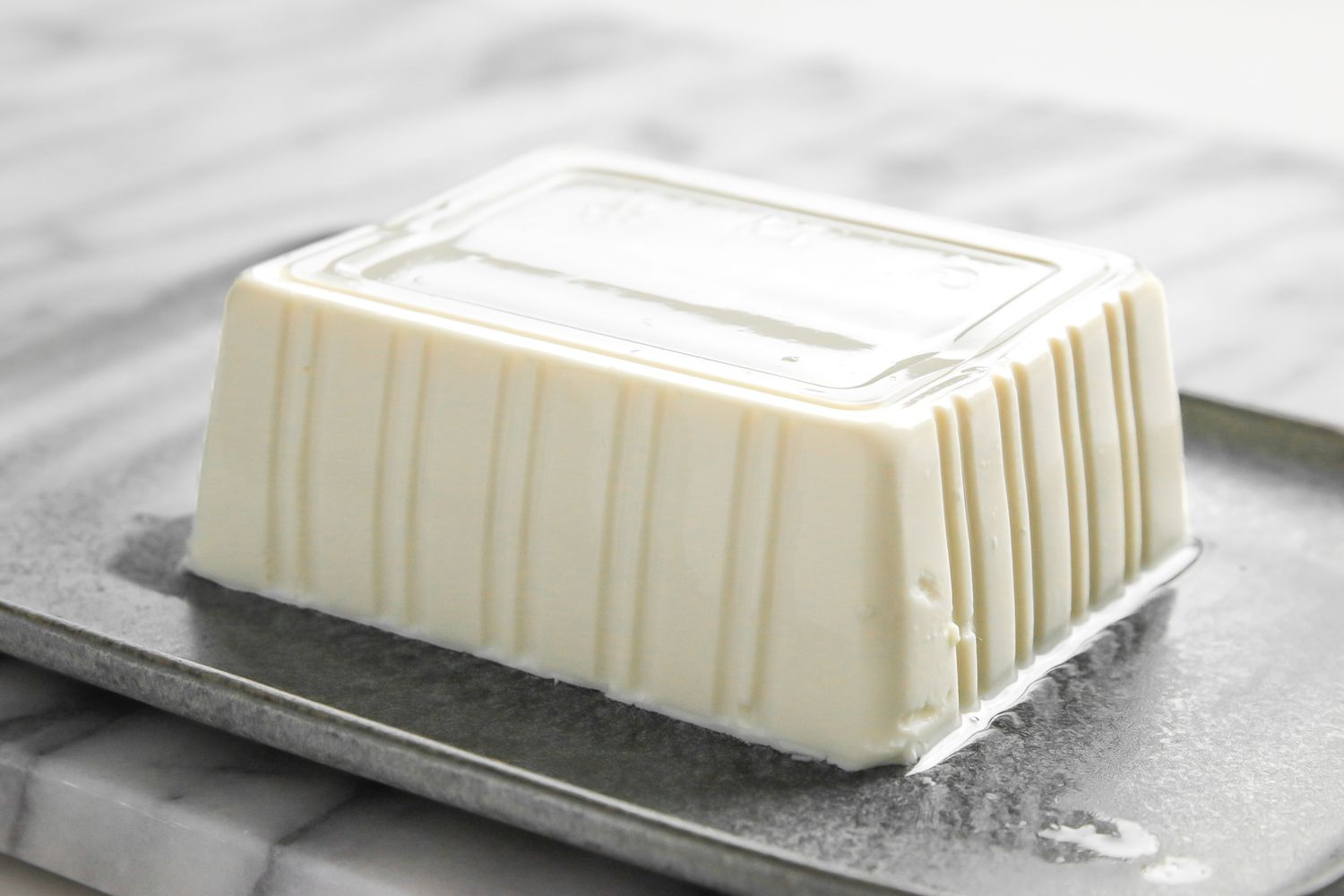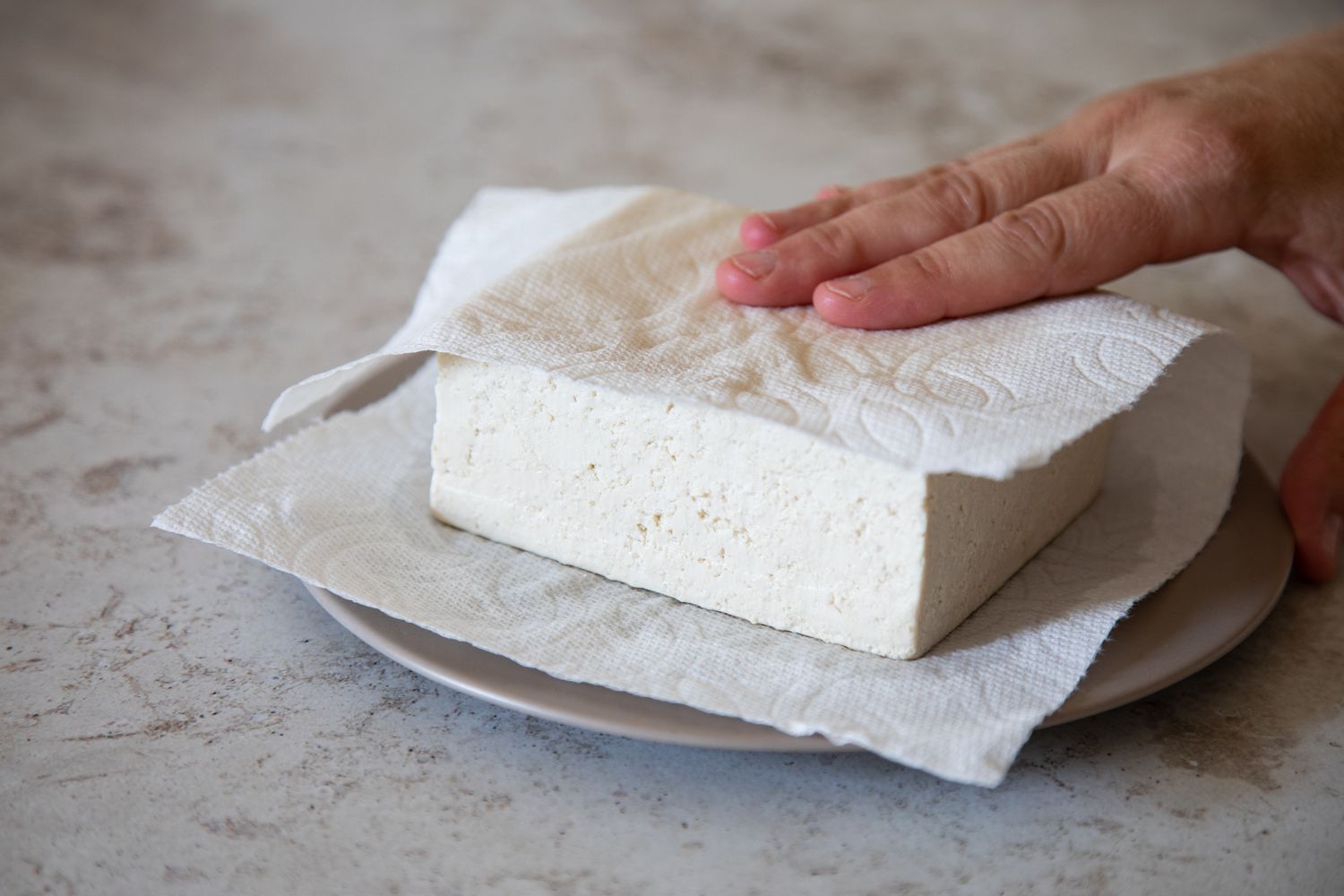

Articles
How To Store Tofu
Modified: December 7, 2023
Learn the best techniques for storing tofu in this comprehensive guide. Discover tips and tricks to keep your tofu fresh and flavorful.
(Many of the links in this article redirect to a specific reviewed product. Your purchase of these products through affiliate links helps to generate commission for Storables.com, at no extra cost. Learn more)
Introduction
Tofu, also known as bean curd, is a versatile and popular ingredient in many vegetarian and vegan dishes. Made from soybeans, it is a great source of protein and is often used as a substitute for meat in various recipes. However, storing tofu properly is essential to maintain its taste, texture, and freshness.
In this article, we will explore the best practices for storing tofu to ensure that it stays fresh for as long as possible. Whether you have just purchased tofu or have leftover tofu from a previous meal, these tips and techniques will help you maintain its quality.
So let’s dive in and discover the secrets to storing tofu effectively!
Key Takeaways:
- Properly storing tofu is crucial for maintaining its freshness and flavor. From choosing the right type to freezing and reviving, these tips will help you enjoy delicious tofu dishes for longer periods.
- To extend the shelf life of tofu, keep it refrigerated, avoid excess moisture, and plan your meals to use it before it spoils. Following these storage techniques will ensure fresh and flavorful tofu in your vegetarian and vegan recipes.
Read more: How To Store Cooked Tofu
Choosing the Right Tofu
Before we delve into storing tofu, it’s important to choose the right type of tofu for your needs. There are different varieties available, each with its own texture and consistency. Here are a few factors to consider when selecting tofu:
- Firmness: Tofu comes in various levels of firmness, including soft, medium, firm, and extra firm. The firmness of tofu determines its texture and how well it holds its shape during cooking. Soft tofu is great for soups and desserts, while firmer varieties are ideal for stir-fries and grilling.
- Packaging: Tofu is typically sold in water-filled packages or vacuum-sealed containers. Water-packed tofu tends to have a shorter shelf life, while vacuum-sealed tofu can last longer. Consider your usage and storage options when selecting the packaging.
- Organic or Non-organic: Organic tofu is made from soybeans that are grown without the use of pesticides or genetically modified organisms (GMOs). If you prefer organic products, look for tofu that is certified organic.
By considering these factors, you can choose the right type of tofu that suits your desired recipe and storage requirements.
Storing Unopened Tofu
When you purchase tofu from the store and it is still sealed in its original packaging, there are a few steps you can take to ensure its freshness and longevity:
- Check the expiration date: Before buying tofu, always check the expiration date on the package. Choose the one with the furthest expiration date to give yourself more time to use it.
- Keep it refrigerated: Unopened tofu should be stored in the refrigerator as soon as you bring it home. The temperature of the refrigerator should be set between 35°F and 40°F (1.6°C and 4.4°C) to maintain optimal freshness.
- Do not open the package: It is best to keep the tofu in its original packaging until you are ready to use it. Opening the package exposes the tofu to air and can shorten its shelf life.
- Avoid cross-contamination: To prevent any potential cross-contamination, store the unopened tofu away from raw meat, seafood, or any other strong-smelling foods that may affect its flavor.
By following these steps, you can ensure that unopened tofu remains fresh and ready to be used in your next culinary creation.
Storing Opened Tofu
Once you have opened a package of tofu, it is important to store it properly to maintain its freshness and prevent it from spoiling. Here are some guidelines for storing opened tofu:
- Drain and store in water: When you open the tofu package, drain off the excess liquid and transfer the tofu to a container filled with fresh water. Make sure the container is covered and keeps the tofu submerged in water. Change the water daily to prevent any bacterial growth.
- Refrigeration: Place the container with the tofu in the refrigerator. It is recommended to use the tofu within 3-5 days to ensure its quality and taste. The longer it sits in the refrigerator, the more the texture and flavor may deteriorate.
- Air-tight container: If you prefer not to store the tofu in water, you can wrap it tightly in plastic wrap or aluminum foil before placing it in an air-tight container. This method helps preserve the moisture and freshness of the tofu.
- Labeling: To keep track of the storage time, it is helpful to label the container with the date you opened the tofu. This will remind you of its freshness and when it should be used by.
- Odor absorption: Tofu has a tendency to absorb odors from other foods in the refrigerator. To avoid this, store the tofu in a separate container or use an odor-resistant container.
Remember, storing opened tofu properly is crucial for maintaining its quality and flavor. By following these tips, you can extend the shelf life and enjoy delicious tofu dishes for longer periods.
Store tofu in a container filled with water and keep it in the refrigerator. Change the water every day to keep the tofu fresh for up to a week.
Freezing Tofu
If you find yourself with leftover tofu that you won’t be able to use within a few days, freezing it is a great option to extend its shelf life. Freezing tofu not only prevents it from spoiling but also gives it a unique texture that some people prefer. Here’s how you can freeze tofu:
- Drain and press the tofu: Start by draining the tofu from its packaging and gently pressing it between clean kitchen towels or paper towels. This step helps remove excess moisture from the tofu, allowing it to freeze better.
- Cut into desired portions: Cut the tofu into your preferred portions, such as cubes or slices. This will make it easier to defrost and use the desired amount later on.
- Wrap and store: Individually wrap each piece of tofu tightly in plastic wrap or place them in a freezer-safe bag. Ensure that there is minimal air exposure to avoid freezer burn.
- Label and date: It’s essential to label the packaging with the date of freezing to keep track of its storage time. Frozen tofu should ideally be used within three months for the best texture and flavor.
By following these steps, you can freeze tofu successfully and have it readily available for future use. Keep in mind that freezing tofu can create a denser texture, which makes it great for dishes like stir-fries, stews, or even as a meat substitute.
Read more: How To Properly Store Tofu
Reviving Frozen Tofu
When you’re ready to use your frozen tofu, it’s important to follow the proper steps to revive its texture and flavor. Here’s how you can do it:
- Thaw in the refrigerator: Place the wrapped tofu in the refrigerator and allow it to thaw slowly. This usually takes around 24 hours. Thawing in the refrigerator helps maintain the texture and flavor of the tofu.
- Press to remove excess moisture: Once the tofu is completely thawed, gently press it between kitchen towels or paper towels to remove any excess moisture that may have accumulated during the freezing process. This step is crucial to ensure the tofu’s texture is not watery.
- Marinate or season: Now that the tofu is thawed and pressed, it’s the perfect time to marinate or season it to infuse it with flavors. You can marinate it in a mixture of soy sauce, vinegar, herbs, or any other desired seasonings to enhance the taste.
- Cook or bake: After marinating, you can proceed to cook or bake the tofu according to your recipe. The revived tofu will have a slightly denser and chewier texture compared to fresh tofu, making it great for stir-fries, grilling, or even adding to soups and stews.
Reviving frozen tofu is a fantastic way to utilize your thawed tofu in various dishes. It’s important to note that frozen tofu may not have the same texture as fresh tofu, but it can still add a delicious and unique element to your meals.
Tips for Extending Tofu Shelf Life
To maximize the shelf life of tofu and ensure its freshness, here are some additional tips to keep in mind:
- Proper storage temperature: Store tofu in the refrigerator between 35°F and 40°F (1.6°C and 4.4°C). Keeping it at the right temperature will help inhibit the growth of bacteria and prolong its shelf life.
- Avoid moisture: Excess moisture can hasten the deterioration of tofu. Make sure to drain and press the tofu before storing it to remove as much moisture as possible. This will help prevent spoilage and maintain its quality.
- Use a clean container:Bacteria can thrive in dirty or contaminated containers. When storing tofu, ensure that the container is clean and free from any food residue to prevent any bacterial contamination.
- Avoid direct exposure to air: Tofu can absorb odors and flavors from its surroundings. To prevent this, store tofu in an airtight container or wrap it tightly in plastic wrap or aluminum foil to minimize its contact with air.
- Don’t mix types: If you have different types of tofu, such as soft and firm, it’s best not to store them together. Mixing different types of tofu can cause them to deteriorate faster and affect their texture and flavor.
- Plan your meals: As tofu has a relatively short shelf life once opened, it’s helpful to plan your meals in advance to ensure it is used before it spoils. Consider incorporating tofu into your meal prep and recipes to avoid wastage.
By following these tips, you can extend the shelf life of tofu and maintain its freshness and quality for as long as possible. Proper storage and handling are key to enjoying tofu’s taste and texture in your favorite dishes.
Conclusion
Properly storing tofu is essential for maintaining its freshness, taste, and texture. Whether you have unopened tofu or leftover tofu from a previous meal, following the right storage techniques will help prolong its shelf life and ensure its quality.
When purchasing tofu, choose the right type and check the expiration date to ensure its freshness. Keep unopened tofu refrigerated and away from strong-smelling foods to prevent cross-contamination.
Once opened, store tofu in water or in an air-tight container in the refrigerator. Label it with the date of opening to track its freshness. If you have excess tofu that won’t be consumed within a few days, freezing it is a great option. Simply thaw it in the refrigerator, press out excess moisture, and enjoy it in various recipes.
To extend the shelf life of tofu, maintain the proper storage temperature, avoid excess moisture, and prevent direct exposure to air. Keep different types of tofu separate and plan your meals to use it before it spoils.
By following these tips for storing tofu, you can enjoy fresh and flavorful tofu in your vegetarian and vegan dishes. Whether you’re stir-frying, grilling, or adding tofu to soups and stews, proper storage practices will ensure that your tofu remains a delicious and nutritious ingredient in your meals.
So go ahead, store your tofu with care and savor its taste and versatility in your favorite recipes!
Frequently Asked Questions about How To Store Tofu
Was this page helpful?
At Storables.com, we guarantee accurate and reliable information. Our content, validated by Expert Board Contributors, is crafted following stringent Editorial Policies. We're committed to providing you with well-researched, expert-backed insights for all your informational needs.















0 thoughts on “How To Store Tofu”